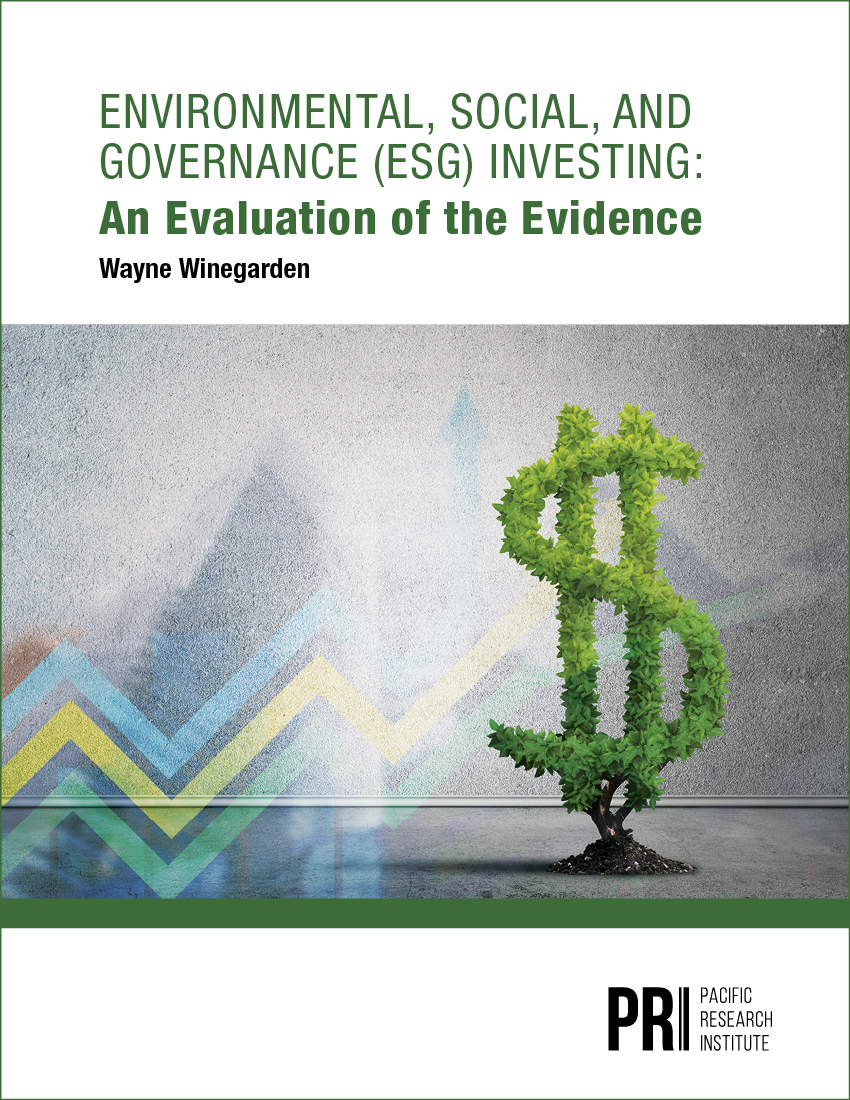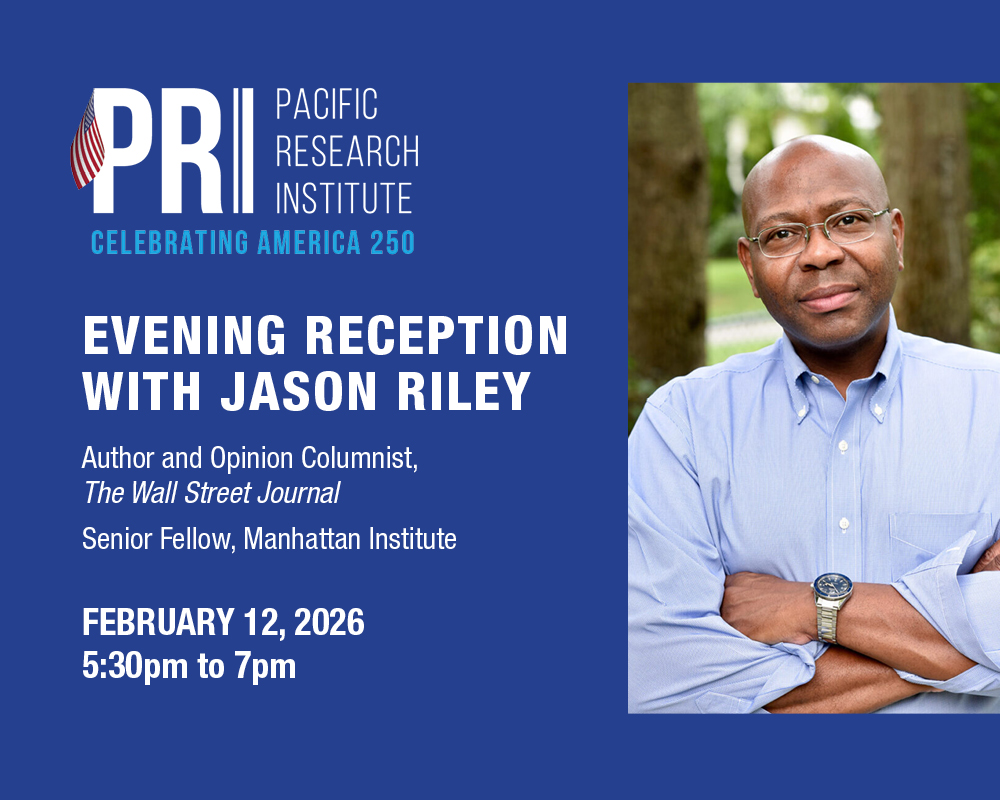 ESG funds that champion environmental and social causes have historically underperformed funds investing in the broader market over the long-term, so finds a new study released today by California-based, free-market think tank, the Pacific Research Institute.
ESG funds that champion environmental and social causes have historically underperformed funds investing in the broader market over the long-term, so finds a new study released today by California-based, free-market think tank, the Pacific Research Institute.
“In recent years, ESG funds have been presented to investors as socially responsible as well as likely to outperform broader based funds. But the long-term record of ESG funds when compared to an S&P Index fund show that that’s not necessarily the case,” said Dr. Wayne Winegarden, PRI Senior Fellow in Business and Economics and the study’s author.
“While ESG funds offer environmental and socially conscious investors an investment option that suits their interests, based on the historical record, they should not see these investment vehicles as likely to outperform the broader market,” Winegarden continued. “There’s a place in a portfolio for these types of funds, but environmental and socially conscious investors should examine their own risk/reward profile and consider whether they could accept lower-returns with ESG funds over the long-term.”
Environmental, social, and government (or ESG) investment criteria includes non-financial criteria – typically a company’s impact on the environmental or social issues – alongside the expected financial returns of the investment.
In his “Environmental, Social, and Governance (ESG) Investing: An Evaluation of the Evidence,” Winegarden analyzes 30 ESG funds that have either existed for more than 10 years or outperformed the S&P 500 over a short-term period.
Analyzing the 18 funds with a 10-year track record, the study concludes that a $10,000 ESG portfolio would be 43.9 percent smaller compared to an investment in a broader, S&P 500 index fund. Just one fund would beat the earnings of an S&P 500 investment over 5 years, and just two would beat it over a 10 year period.
Winegarden noted the funds also carried higher risks than S&P 500 funds because they are less diversified in their holdings. 37 percent of funds are allocated to the top 10 holdings on average in ESG funds Winegarden studied, compared to 21 percent in a broader S&P 500 index fund.
Also, ESG funds typically have higher costs. The average expense ratio of the ESG funds were 0.69 percent, compared with just 0.09 percent for the S&P 500 index funds. Winegarden notes that funds with higher expenses can meaningfully reduce an investor’s total return.
While possibly appropriate for individual investors, ESG criteria are problematic when applied to public pension funds. ESG investing is a growing trend for public pension funds, particularly CalPERS. Winegarden has written that ESG investing is a growing threat to funds like CalPERS as investment decisions are made based on political decisions, not the fiduciary responsibility to maximize fund growth. Earlier this month, he spoke at an Institute for Pension Fund Integrity event on ESG investment in Washington, DC featuring Rep. Sean Duffy (R-WI) and CalPERS board member Jason Perez.
Two proxy advisory firms that control 97 percent of the market are leading the push for ESG investments. Winegarden submitted written testimony to the Securities and Exchange Commission in November calling for reform to ensure that maximizing fund growth is the priority for these firms, and to increase transparency over the firms’ biases.
Dr. Wayne Winegarden is a Senior Fellow in Business and Economics at Pacific Research Institute and director of PRI’s Center for Medical Economics and Innovation. He is also the Principal of Capitol Economic Advisors.

